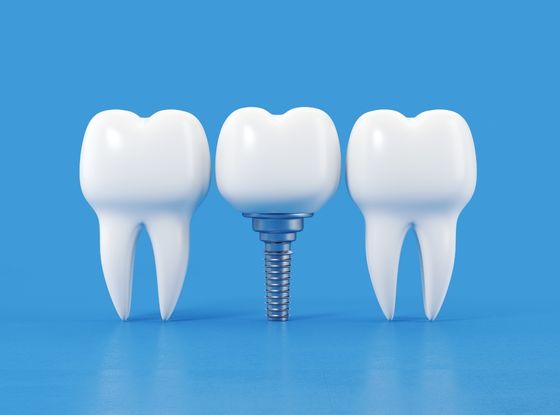Dental Implant Recovery Process

A Guide to the Dental Implant Recovery Process: What to Expect
If you have recently undergone a dental implant procedure, congratulations! You are now on your way to a beautiful, functional smile. However, the recovery process can be a bit intimidating, especially if you’re not sure what to expect. In this guide, we’ll take you through the different stages of dental implant recovery, so you can be prepared for what’s to come. Whether you need a single tooth implant or a full-mouth restoration, our tips will help you heal faster and maintain optimal oral health.
Immediately After Surgery
After your dental implant surgery, your dentist will provide you with instructions on how to care for your implant site. You’ll need to avoid smoking, using straws, and eating hard or sticky foods for a few days. You should also use ice packs to reduce swelling and avoid strenuous activities for at least 24 hours. You may experience some discomfort, but your dentist will prescribe pain medication to help you manage it. It’s important to keep your mouth clean to prevent infection. You can rinse your mouth with saltwater but avoid brushing or flossing the implant site for the first week.
First Few Days
During the first few days of your dental implant recovery, you may experience some bleeding, swelling, and bruising. This is normal and should subside within a week. You can manage these symptoms with over-the-counter pain medication and by applying ice packs to the affected area. Make sure to get plenty of rest and avoid activities that may increase swelling, such as bending over or exercising. It’s also important to stick to soft and lukewarm foods, such as soup and mashed potatoes, to avoid irritating the implant site.
First Two Weeks
After the first week, you can resume your oral hygiene routine, but be gentle around the implant site. You can brush your teeth and use a water flosser but avoid touching the implant or using too much pressure. Your dentist may recommend a special mouthwash to help keep your mouth clean and reduce the risk of infection. You should also continue to stick to soft and lukewarm foods, and avoid smoking and drinking alcohol for at least two weeks.
First Month
By the end of the first month, your dental implant should be fully integrated with your jawbone. You can start introducing harder and chewier foods into your diet, but be careful not to bite down directly on the implant. Your dentist may also recommend a custom-made mouthguard if you grind your teeth at night. This can help protect your new implant and prevent damage. Make sure to attend all your follow-up appointments with your dentist, so they can monitor your progress and make sure your implant is healing properly.
Aftercare
Once your dental implant has fully healed, you should continue to take care of your oral health by brushing and flossing regularly and visiting your dentist for regular checkups. You should also avoid hard and sticky foods, as they can damage your new implant. If you play contact sports, make sure to wear a mouthguard to protect your teeth and gums. With proper care, your dental implant can last a lifetime, and you can enjoy a beautiful, healthy smile for years to come.
Dental implant recovery can be a bit challenging, but it’s important to follow your dentist’s instructions and take care of your oral health. By following our tips and advice, you can speed up your recovery time and minimize the risk of complications. If you’re looking for a dentist in Parker, Colorado, our team at Green Dental Care is here to help. We specialize in dental implants and can provide you with personalized care and attention. Contact us today to schedule a consultation and take the first step towards a beautiful, functional smile.

